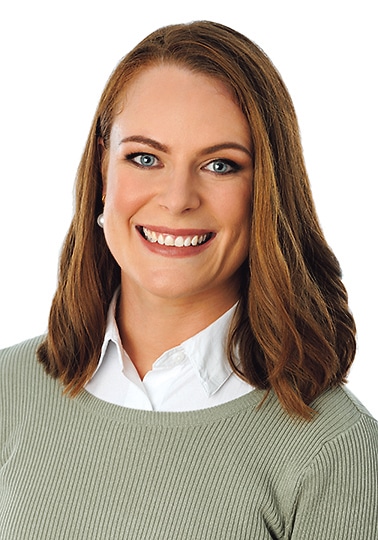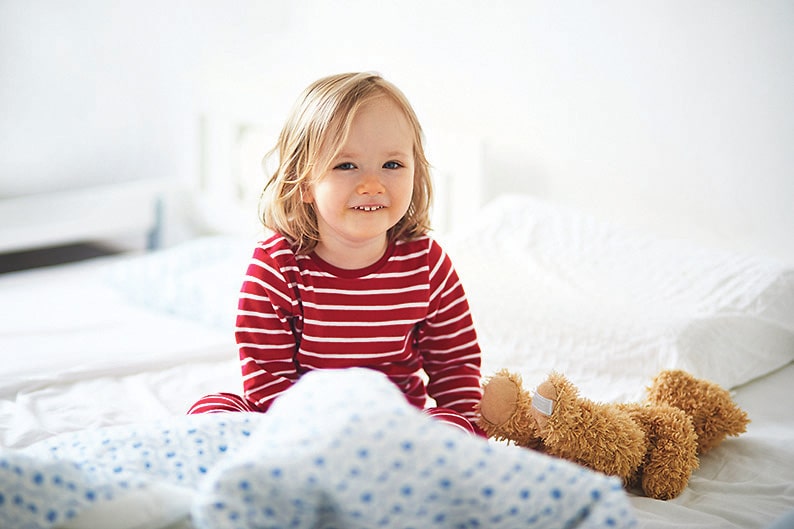
Child Behavior
Sarah Murray is a Paediatric Board Certified Behaviour Analyst (BCBA). Her practice is based in county Cork but she works online supporting many families. Sarah specialises in early intervention for infants and young children, with almost a decade of experience working alongside families of children with developmental delays, autism, and intellectual disability. A child behavioural consultant, Sarah helps families and schools to address challenging behaviour in a positive manner using evidence-based intervention strategies.
arahmurrayabatherapy.com
Sleep support for families of children with additional needs is one of Sarah Murray’s niche areas, as she recognises that sleep is a crucial foundation for early intervention and behaviour support.
Thirty to thirty-five per cent of children under the age of five will suffer some form of difficulty with sleep. If you’re a parent, you may very well believe it! However, if your child has a diagnosis of autism, the latest research tells us that a whopping 80 per cent of autistic children experience difficulties around sleep. The main difficulties reported by parents of children with autism are difficulty with falling asleep (delayed sleep onset insomnia), difficulty staying asleep (sleep maintenance insomnia), early morning awakening (anything earlier than 6am) and requiring a parent present at bedtime and through the night, what is referred to as a ‘sleep dependency’.

Research also tells us that, unless addressed, these sleep disturbances will persist into adulthood for many autistic individuals. Many autistic children who experience sleep difficulties are prescribed melatonin (our sleepy hormone that flourishes when night-time descends), or non-FDA approved sleep medications. While we know that autistic individuals are naturally low in melatonin, this treatment does not teach autistic children the vital skills required around sleep. At present, the best-known strategy for tackling those bedtime struggles is behaviourally based, with a staggering efficacy of 94 per cent.
You see, sleep, believe it or not, is a skill, that can be taught, and thus, learned. We can learn to settle in bed well enough for the sand man to visit us. We can learn to sleep independently without mom or dad by our side. We can learn to roll over and go back to sleep instead of wandering out of the bedroom in search of mischief. There is no pill that can teach a skill and children who practice not sleeping become very good at it! It becomes a pattern, a bedtime habit, a night-time ritual. All of this can be accomplished without using a ‘cry-it-out’ method (because when children are distressed, their stress hormones increase which shuts down any little bit of sleepiness that was there).
Sleep is an important restorative process for both the mind and the body. When a child sleeps, their body’s immune system heals and repairs itself, their muscles repair and regenerate and very interestingly and newly discovered, their glymphatic system activates (this is where the brain ‘flushes’ waste material away). Sleep is also the time when children’s growth hormones are released. Cognitive growth, repair and restoration occurs during sleep, and this is the time when memories are consolidated.
There is a myriad of effects that sleep deprivation can bring to an autistic child. Naturally, like all children, they will have a shorter fuse and be more prone to meltdowns and behavioural outbursts with a lot of emotional dysregulation being displayed. In terms of development, children will not be able to participate to the best of their ability in school nor in therapy. When a child is sleep-deprived, their memory will be impaired, attention and concentration wains, and so the absorption and retention of important information will be impacted, leading to less success at school and at therapy. Parents, siblings and anyone else under the same roof, can oftentimes develop their own sleep difficulties too as a result of a child with sleep difficulties. Just know that with the right sleep assessment, the right tailored sleep support plan and the right sleep practitioner, your child can learn to get a better night’s sleep.
Sarah has presented on the topic of autism and sleep both nationally and internationally. Keep an eye out on her website for the next upcoming sleep and autism webinar.
sarahmurrayabatherapy.com


